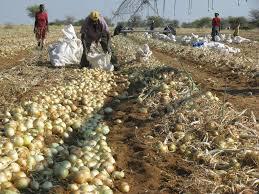Scale up agroecology during hunger crisis
ELLANIE SMIT
WINDHOEK
Friday was World Food Day, and the World Future Council (WFC) has warned governments that millions of people are threatened by hunger.
Namibia commemorated World Food Day at the Odibo Combined School in the Ohangwena Region this year.
The World Future Council says the coronavirus pandemic is deepening existing hunger crises and increasing inequalities. “Over-production, waste, unequal distribution and lack of resilience sadly are the characteristics of our globalised food system.” Experts of the World Future Council urged the scaling up of agroecology to eradicate hunger and poverty, build resilience, and strengthen children, citizens and smallholders.
“The coronavirus pandemic is a symptom of a food system in critical need of transformation to address key health, nutrition, hunger, poverty, climate change and animal welfare issues at their roots.
“We request that the huge sums made available for restarting the economy be used proactively to further the food system's agroecological transformation, restore the agroecosystem, and assure its long-term resilience with a focus on food sovereignty, right to food and the universally agreed SDGs' framework,” said Hans Herren, world expert on agriculture and councillor at the World Future Council.
Dr Vandana Shiva, founding councillor of the World Future Council, said the pandemic is a wake-up call and that millions of smallholders had already been struggling before the pandemic hit. “With economies at the brink of collapse, our direction should be clear. Scaling up agroecology by multiplying small farms and farmers is the only way forward.” Alexandra Wandel, executive director of the World Future Council, said that by scaling up agroecology, it is possible to tackle malnutrition, social injustice, climate change, and loss of biodiversity.
Agroecology, as a practice and movement, is widely endorsed by scientists, civil society groups and farmers, protecting smallholders, indigenous farmers and community supported agriculture while assuring food security for all and the long term.
Hunger and poverty can be eradicated by applying proven holistic agroecological principles that challenge unsustainable food production, consumption and waste, says the WFC.
A recent food insecurity report said that around 17% of Namibia's population were still facing acute food insecurity by the end of September.
However, this percentage is projected to increase to 20% from this month to March next year, with the impact of the coronavirus still putting pressure on households' capacity to access food.
According to the Integrated Food Security Phase Classification (IPC) Acute Food Insecurity Analysis, during the period from July to September around 428 000 people (17% of the population) in Namibia were facing high levels of acute food insecurity or worse.
The situation requires urgent humanitarian action to reduce food gaps, protect and restore livelihoods and prevent acute malnutrition.
WINDHOEK
Friday was World Food Day, and the World Future Council (WFC) has warned governments that millions of people are threatened by hunger.
Namibia commemorated World Food Day at the Odibo Combined School in the Ohangwena Region this year.
The World Future Council says the coronavirus pandemic is deepening existing hunger crises and increasing inequalities. “Over-production, waste, unequal distribution and lack of resilience sadly are the characteristics of our globalised food system.” Experts of the World Future Council urged the scaling up of agroecology to eradicate hunger and poverty, build resilience, and strengthen children, citizens and smallholders.
“The coronavirus pandemic is a symptom of a food system in critical need of transformation to address key health, nutrition, hunger, poverty, climate change and animal welfare issues at their roots.
“We request that the huge sums made available for restarting the economy be used proactively to further the food system's agroecological transformation, restore the agroecosystem, and assure its long-term resilience with a focus on food sovereignty, right to food and the universally agreed SDGs' framework,” said Hans Herren, world expert on agriculture and councillor at the World Future Council.
Dr Vandana Shiva, founding councillor of the World Future Council, said the pandemic is a wake-up call and that millions of smallholders had already been struggling before the pandemic hit. “With economies at the brink of collapse, our direction should be clear. Scaling up agroecology by multiplying small farms and farmers is the only way forward.” Alexandra Wandel, executive director of the World Future Council, said that by scaling up agroecology, it is possible to tackle malnutrition, social injustice, climate change, and loss of biodiversity.
Agroecology, as a practice and movement, is widely endorsed by scientists, civil society groups and farmers, protecting smallholders, indigenous farmers and community supported agriculture while assuring food security for all and the long term.
Hunger and poverty can be eradicated by applying proven holistic agroecological principles that challenge unsustainable food production, consumption and waste, says the WFC.
A recent food insecurity report said that around 17% of Namibia's population were still facing acute food insecurity by the end of September.
However, this percentage is projected to increase to 20% from this month to March next year, with the impact of the coronavirus still putting pressure on households' capacity to access food.
According to the Integrated Food Security Phase Classification (IPC) Acute Food Insecurity Analysis, during the period from July to September around 428 000 people (17% of the population) in Namibia were facing high levels of acute food insecurity or worse.
The situation requires urgent humanitarian action to reduce food gaps, protect and restore livelihoods and prevent acute malnutrition.





Comments
Namibian Sun
No comments have been left on this article